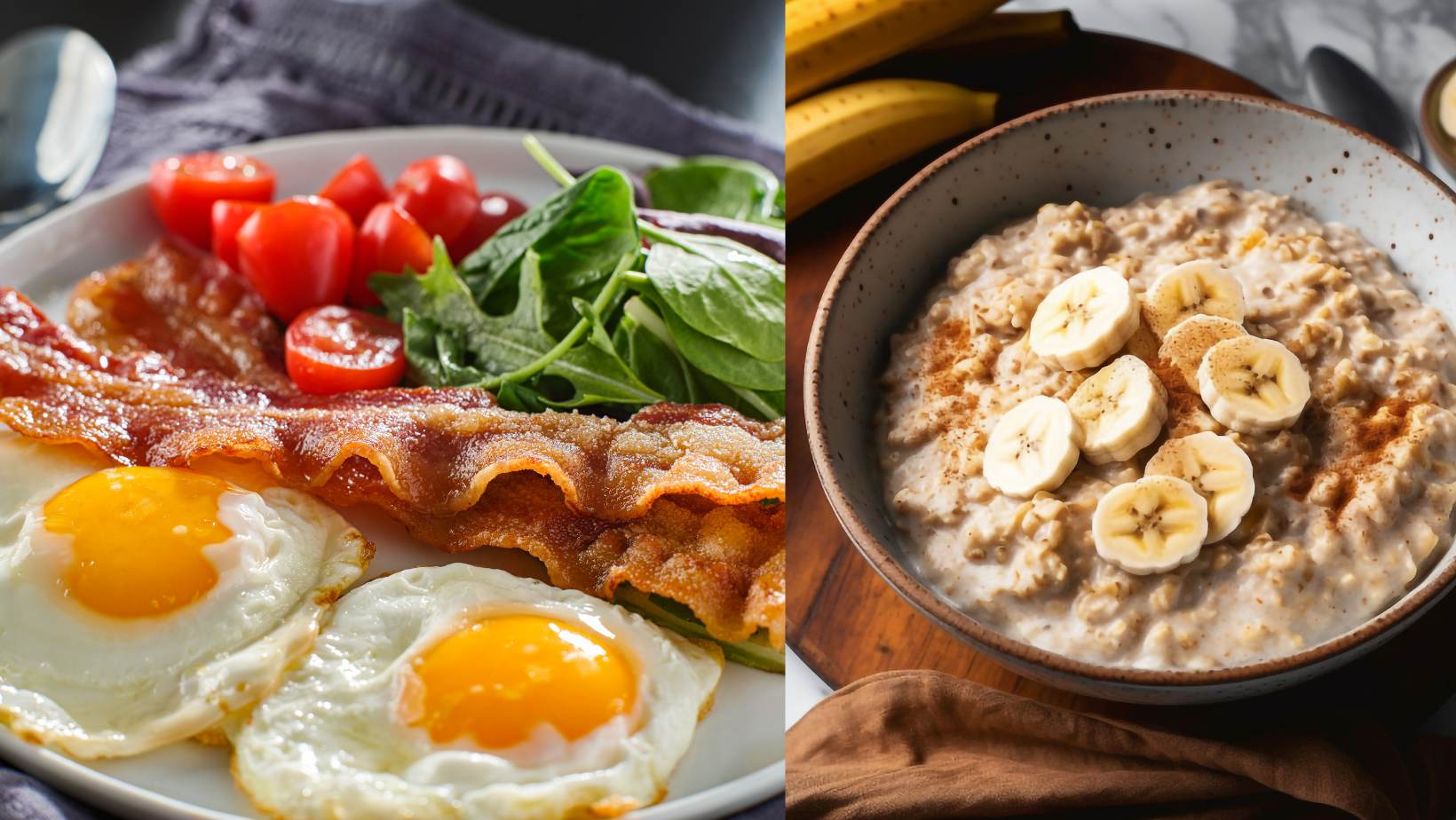As a diabetic, you’ve likely been bombarded with conflicting advice about what to eat for breakfast. From the American Diabetes Association’s endorsement of oatmeal to the latest fad touting the benefits of banana smoothies, it’s no wonder you’re left scratching your head. But according to Dr. Sarah Thompson, a family physician with over 20 years of experience, many of these recommendations could be secretly sabotaging your blood sugar control.
5 Breakfast Champions for Stable Blood Sugar
To help you navigate the breakfast minefield, Dr. Thompson has identified five nutrient-dense, low-carb options that can keep your glucose levels in check:
1. Eggs: Nature’s Multivitamin
Packed with essential amino acids, healthy fats, and a host of vitamins and minerals, eggs are the ultimate breakfast superfood. “The more pastured and organic the eggs, the better,” notes Dr. Thompson. “But even conventional eggs are a powerhouse of nutrition that won’t spike your blood sugar.”
2. Avocado: The Potassium King
Forget bananas – avocados are the true potassium champions, boasting 500 milligrams per 100-gram serving. They’re also low in carbs and high in heart-healthy monounsaturated fats, making them an ideal choice for diabetics.
3. Bacon: Not Just for Keto
While processed meats have gotten a bad rap, Dr. Thompson maintains that bacon can be a savvy addition to a diabetic breakfast plate. “Both uncured and conventional bacon provide a solid dose of protein and fat to stabilize blood sugar,” she explains. “Just be mindful of sodium content if you have hypertension.”
4. Steak: The Breakfast of Champions
Who says steak is just for dinner? According to Dr. Thompson, this protein powerhouse is a fantastic way to start your day. “Even the cheapest cuts of steak are loaded with essential nutrients that won’t send your glucose levels on a roller coaster,” she asserts.
5. Full-Fat Greek Yogurt with Nuts
For those craving a bit of variety, Dr. Thompson suggests a bowl of full-fat Greek yogurt topped with a handful of nuts. “The combination of protein, fat, and fiber will help keep you full and your blood sugar stable,” she notes. “Just be sure to choose plain yogurt to avoid added sugars.”
5 Breakfast Blunders to Avoid
On the flip side, Dr. Thompson cautions against several common breakfast foods that can wreak havoc on your glucose control:
1. Oatmeal: A Carb Bomb in Disguise
Despite its wholesome reputation, oatmeal is essentially pure carbohydrate. “Whether it’s instant or steel-cut, oatmeal breaks down into glucose and fructose, which can send your blood sugar soaring,” warns Dr. Thompson.
2. Bananas: Not as Nutritious as You Think
While often touted as a potassium-rich superfood, bananas are actually quite high in sugar. “A medium banana contains 22 grams of carbs and only 350 milligrams of potassium,” reveals Dr. Thompson. “You’re better off reaching for an avocado.”
3. English Muffins: A Wheat-Based Wolf in Sheep’s Clothing
Don’t be fooled by their seemingly innocuous appearance – English muffins are made from refined wheat flour, which is rapidly converted to glucose in your bloodstream. “There’s no meaningful nutrition in an English muffin,” states Dr. Thompson. “It’s just a blood sugar spike waiting to happen.”
4. Muesli with Berries: A Sugary Trap
While muesli might sound like a virtuous choice, it’s essentially just raw oats mixed with sugary dried fruit. “Even if you add a few nuts, the oats and berries will break down into pure glucose and fructose,” cautions Dr. Thompson.
5. Cereal with Skim Milk: The Worst Offender
“I’ve saved the worst for last,” says Dr. Thompson. “Boxed cereals, even those marketed as ‘heart-healthy,’ are ultra-processed junk filled with rapidly digesting carbs. Pair that with sugary skim milk, and you’ve got a recipe for glucose disaster.”
Your Breakfast Questions, Answered
What if I don’t have time to cook in the morning?
Dr. Thompson’s advice? Don’t be afraid to think outside the breakfast box. “Leftovers from a healthy dinner, like grilled chicken or roasted veggies, can make a fantastic breakfast,” she suggests. “The key is to prioritize protein and healthy fats over carbs.”
Can I ever enjoy treats like pancakes or waffles?
“Absolutely,” says Dr. Thompson. “But I recommend saving these foods for special occasions and making them with blood sugar-friendly ingredients like almond flour, eggs, and healthy fats. You can also experiment with low-carb sweeteners like monk fruit or erythritol.”
What about breakfast on the go?
“If you’re rushed in the morning, try batch-cooking frittatas or egg muffins on the weekend,” advises Dr. Thompson. “They’re easy to reheat and take with you. You can also grab a hard-boiled egg and a handful of nuts for a quick, blood sugar-stabilizing breakfast.”
The bottom line? By focusing on whole, minimally processed foods rich in protein and healthy fats, you can enjoy satisfying breakfasts that won’t send your blood sugar on a wild ride. And as always, be sure to work with your healthcare team to develop an individualized meal plan that meets your unique needs and preferences.
